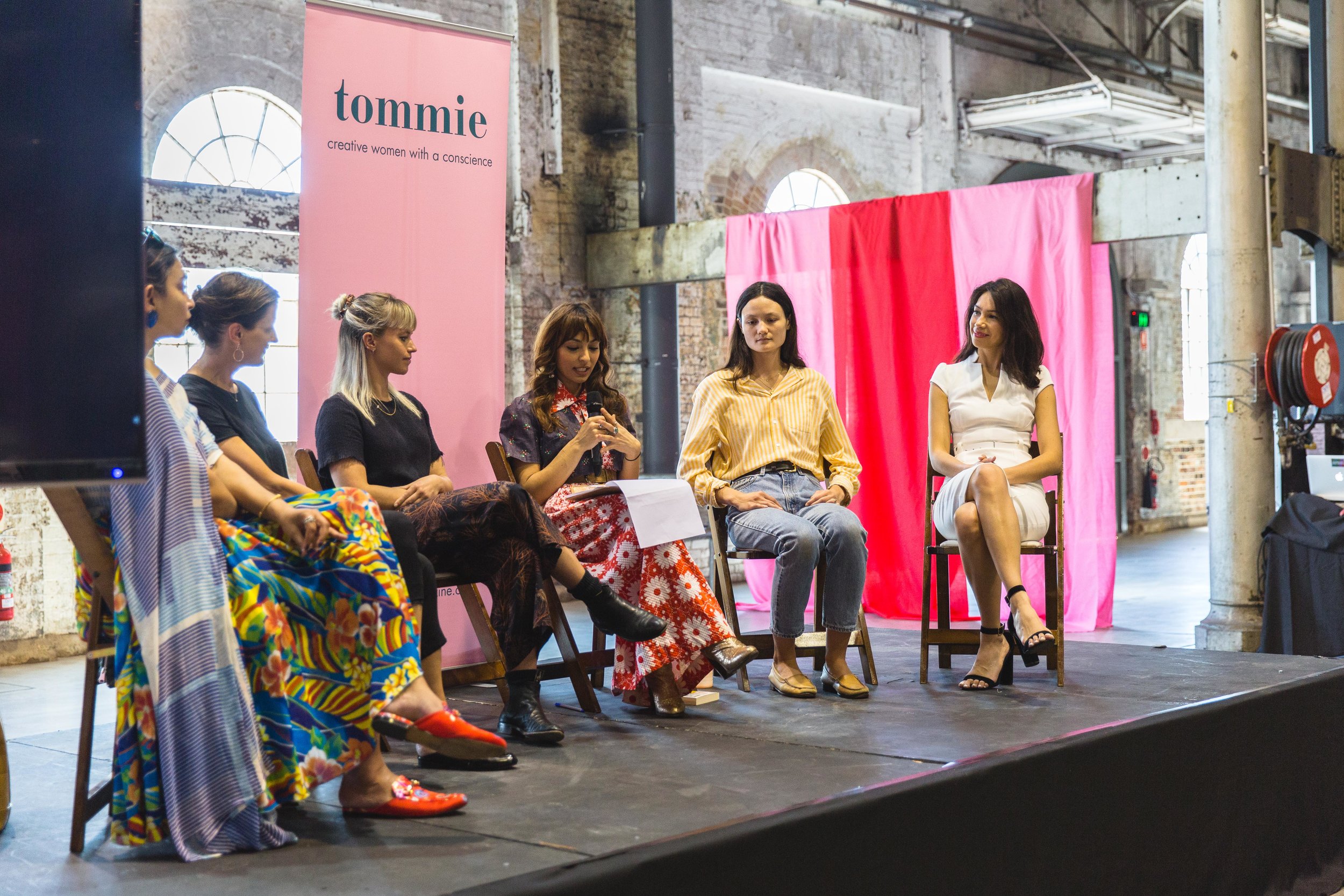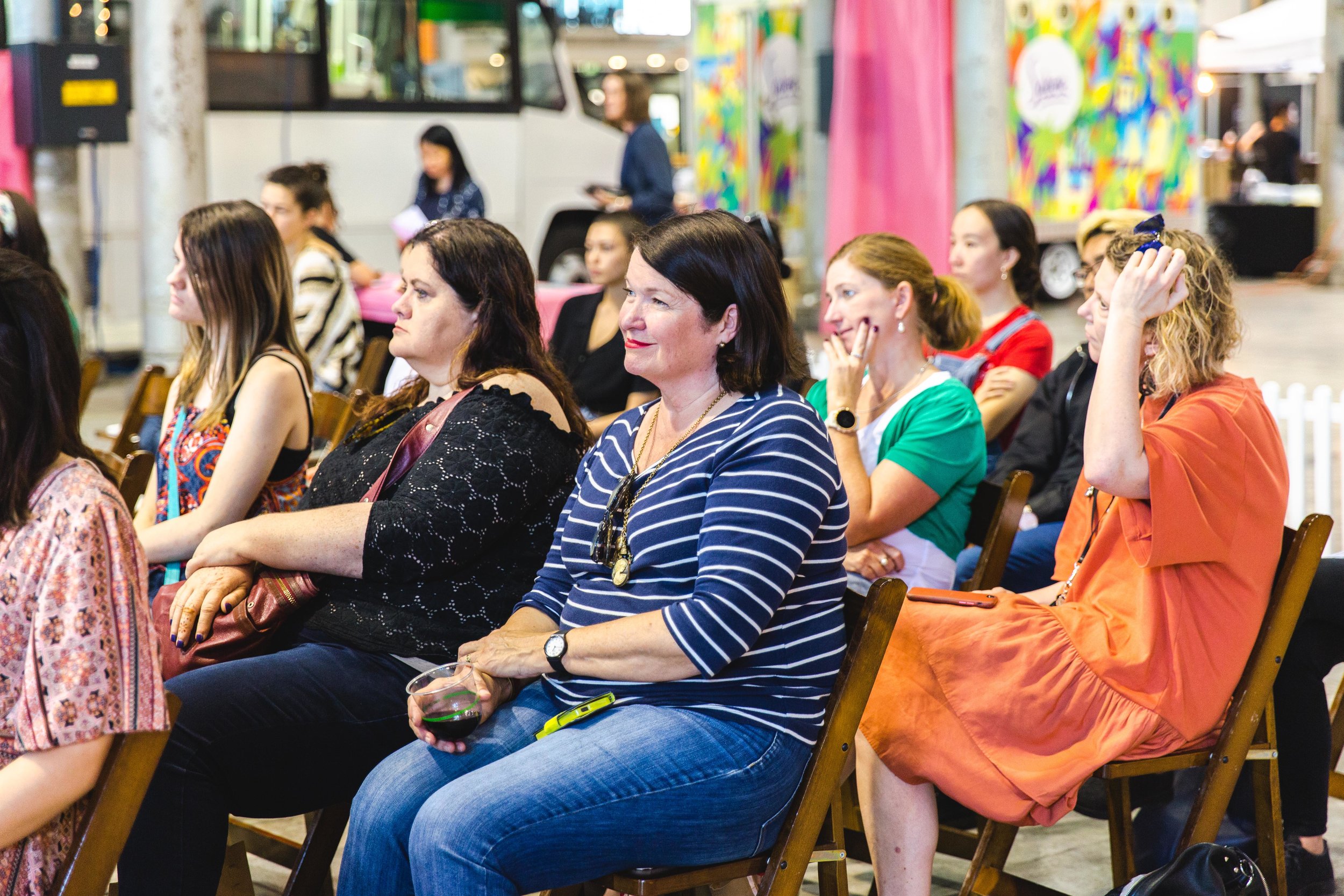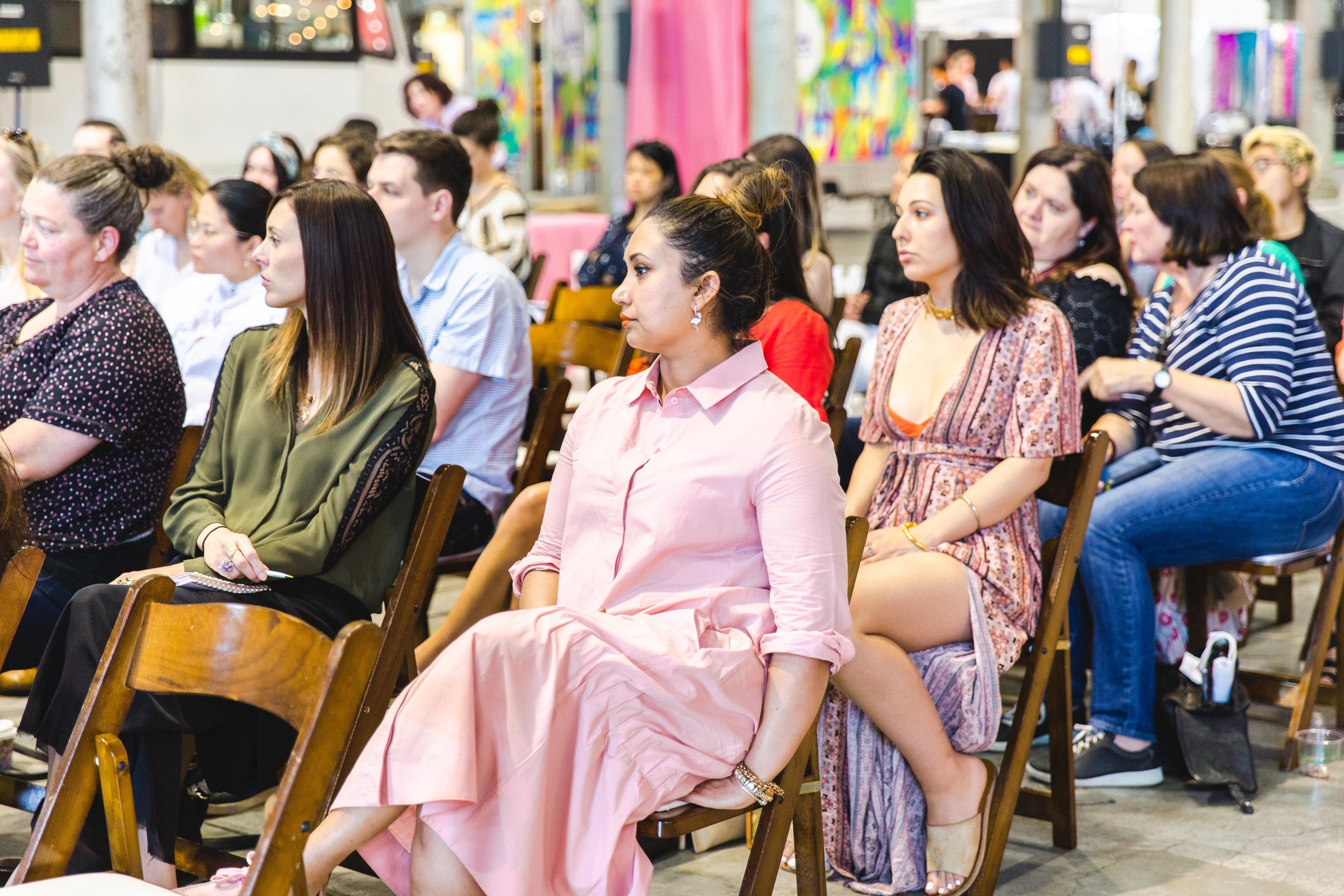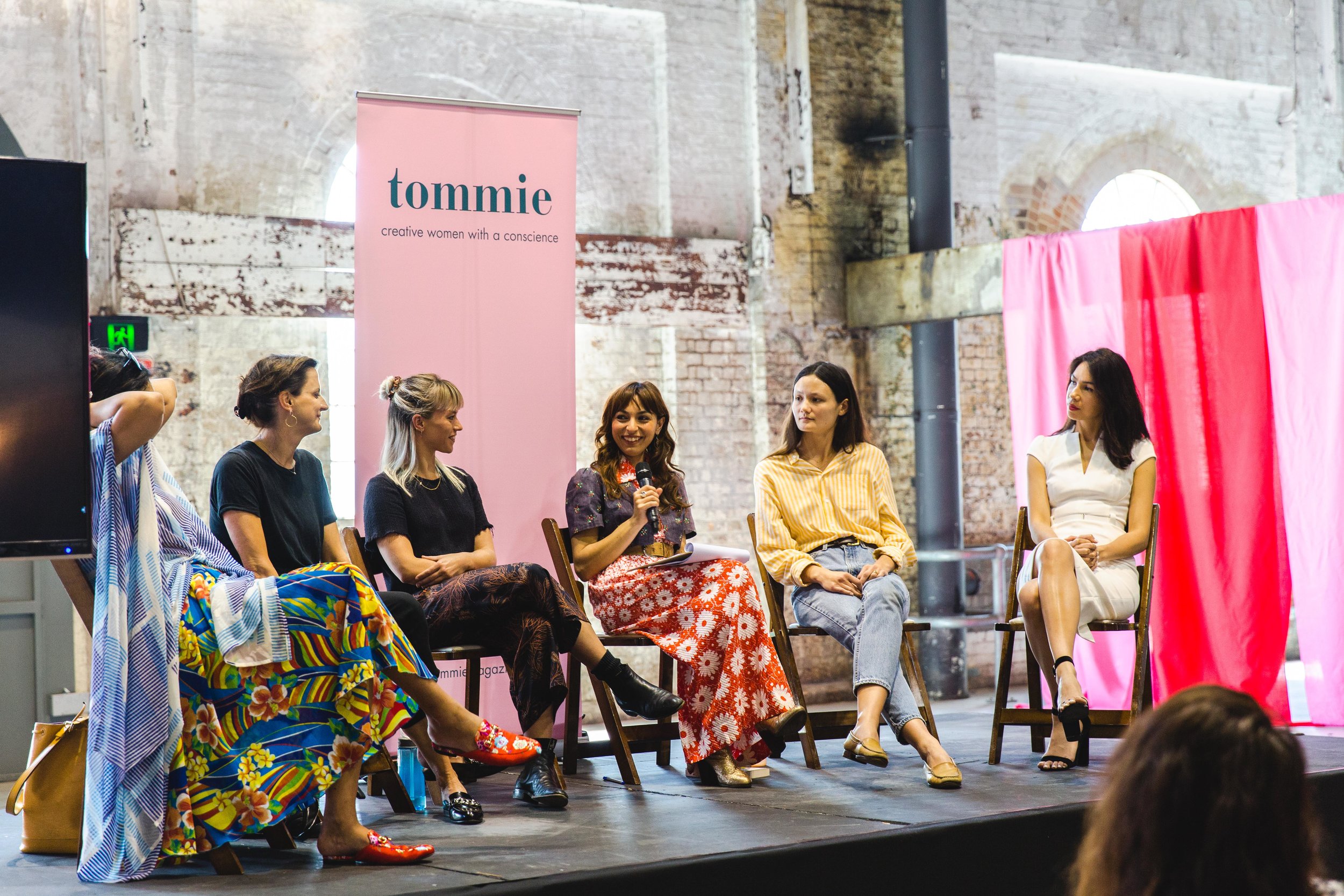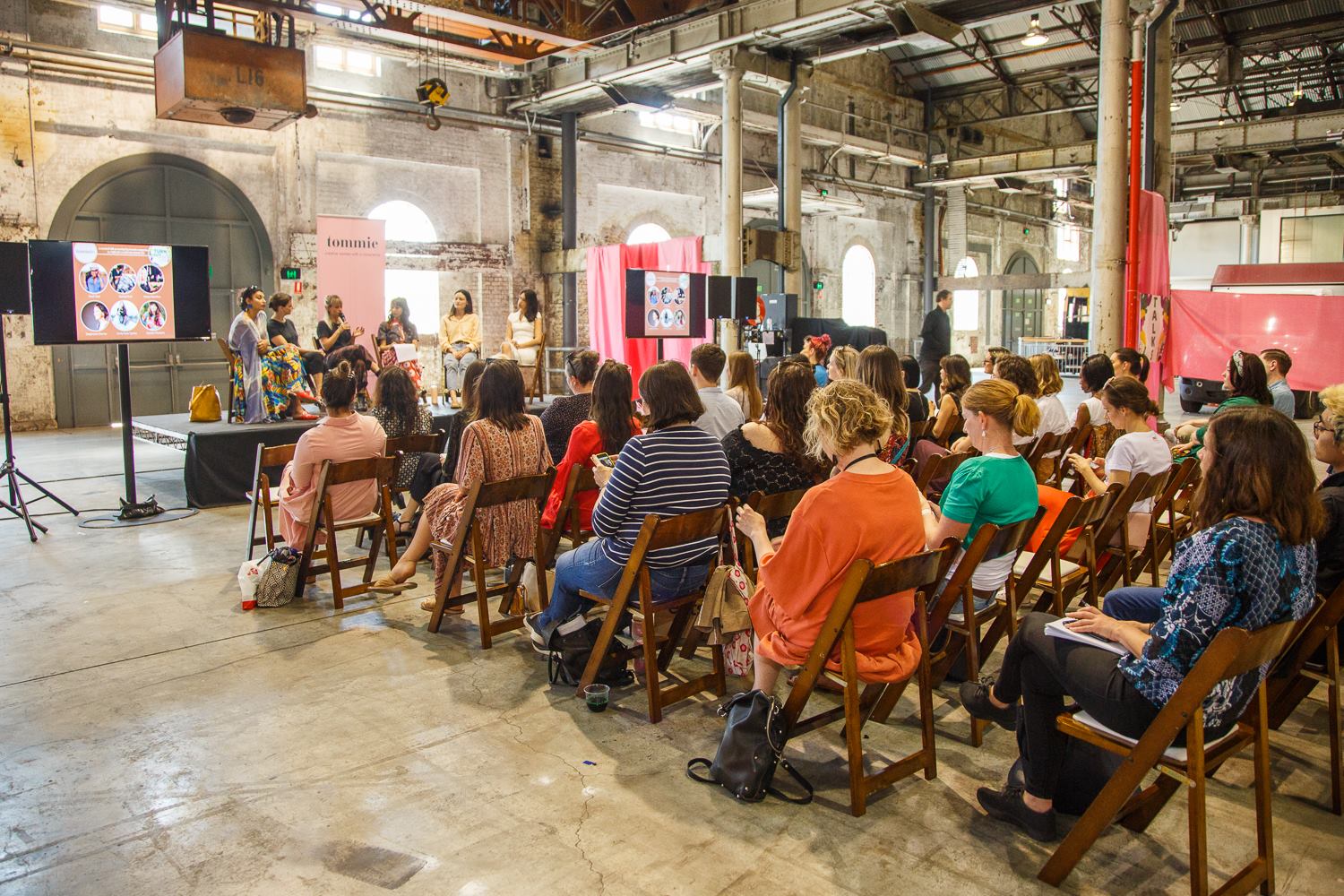What I learnt at the last tommie panel discussion of the year
Words + pictures by: Nicole Wong
I am flustered and sweaty, but I have arrived. It doesn’t help (but it also does help — in a purely sartorial way) that I am wearing a satin floral slip dress and am carrying half my bodyweight in gear. But folks, we made it. Upon entering Turn Out — A Fete For Grown Ups one is greeted with a large warehouse space decorated with a generous amount of fairy lights, crepe paper, and friendly-faced, well-dressed fete goers.
The pink ’tommie’ banner sitting atop an intimate stage beckons me and I make a bee-line toward it. I say hello to an anticipation-filled Nat (founder of tommie, as you surely already know) and then start snapping some photos of the panel set-up. Slowly and then all at once people start to fill the seats and the pre-panel energy loops itself around everyone and their conversations.
The key thing to realise about panels is that there is a lot of inexplicit didacticism. You are there, as an audience member, to essentially listen to and observe a structured conversation. And on Saturday, if you weren’t there — well, I was! And here’s what I learned.
Annie Hamilton Sydney based designer, the first speaker on the panel, summarised the personal and professional mantra of the panelists best by simply posing the question, “if there is a better option, why not pick that?” Whilst seemingly utopic, Annie asks the question that has slowly, but surely gained traction in the last decade within the fashion industry. Of ethics, materials, sustainability — our panelists shared their personal journeys in their respective trades and disciplines. The power of personal conversations is found in their ability to disclose and highlight the intricately detailed obstacles that punctuate ethical decision making. Annie herself shares her realisation of intention over perfection, and the impossibility of ticking every box with ultimately paring it back to cornerstones of connecting with nature and genuine human stories. It is with this grounded authenticity that Annie seeks to prompt consumers to consider their purchases more deeply.
Throughout the panel conversations, each panelist shared their experiences and learnings in a time where fashion practices are shifting to meet people and the planet where they need to be met. In light of this,
Stephanie Devine of The Very Good Bra reached further than the consumer in the audience to the designer, speaking of how “fundamentally, we have to design everything with the end in sight, and if you can’t see [the end], don’t make it”. Stephanie paves the way with her rigorously conscious supply-chain and material sourcing without any compromise in a final product that will better lives in more ways than one.
In the rise of fast fashion, the retail space has become subject to a homogenisation of high ceilings, bright lights, and uniformity. Having just launched her Paddington eco-boutique where patrons can create, socialise, and shop — Emily speaks of the difficulty of connection in an online space, and the organic growth of community in a traditional, physical, bricks and mortar boutique. All the while, of course, being grounded in sustainable practices, circularity, and a look to the future of the share economy with zero waste decor and a garment-hire/rental system.
Whilst largely and intrinsically intertwined, there appears to be a gap in the creative conversations sphere regarding representation and accessibility, and as a young Chinese Australian woman in the creative arts, such issues hit close to home. Thus, it was greatly refreshing to hear Dusk Devi, photographer, writer, and theorist, expatiate to the audience with a fierce grace in her addressing of the shortcomings of the mainstream fashion industry. Dusk highlighted that “fashion is a map or a mask, and we are limiting the language of the fashion world” when we don’t grant equal opportunities to minorities in our western context.
The ever-present thread woven throughout the panel conversations was of the returning to the core of fashion. Rachel Rutt, model and crafter, spoke earnestly of how the industry is one of storytelling that is “meant to take you places”. Transporting us to stretches of golden yellow and lush green, Rachel championed for natural fibres, good stories, and great choices as the key cornerstones of our relationship with clothing. Rachel spoke strongly for the case of simply inviting, and therefore igniting, those who may not feel the possibility of craft and mending as a pursuit in their daily lives and with this, brought to the forefront of my mind my growing stack of please-fix-me clothes.
Armed with a commanding amount of knowledge, discipline, and spirit — these creative Women embody the movements and necessary posture change in the creative industries. There is strong appeal for me in attending these such panels and listening to the personal journeys of other artists and creatives. From the minutiae of what ballpoint pen they consider most conducive to planning out a product line, to the systemic inequality POC artists experience — I am here for the personal narratives that will always breathe life into the complexities and semantics, and remind us that it is important to keep connecting and to keep learning.






